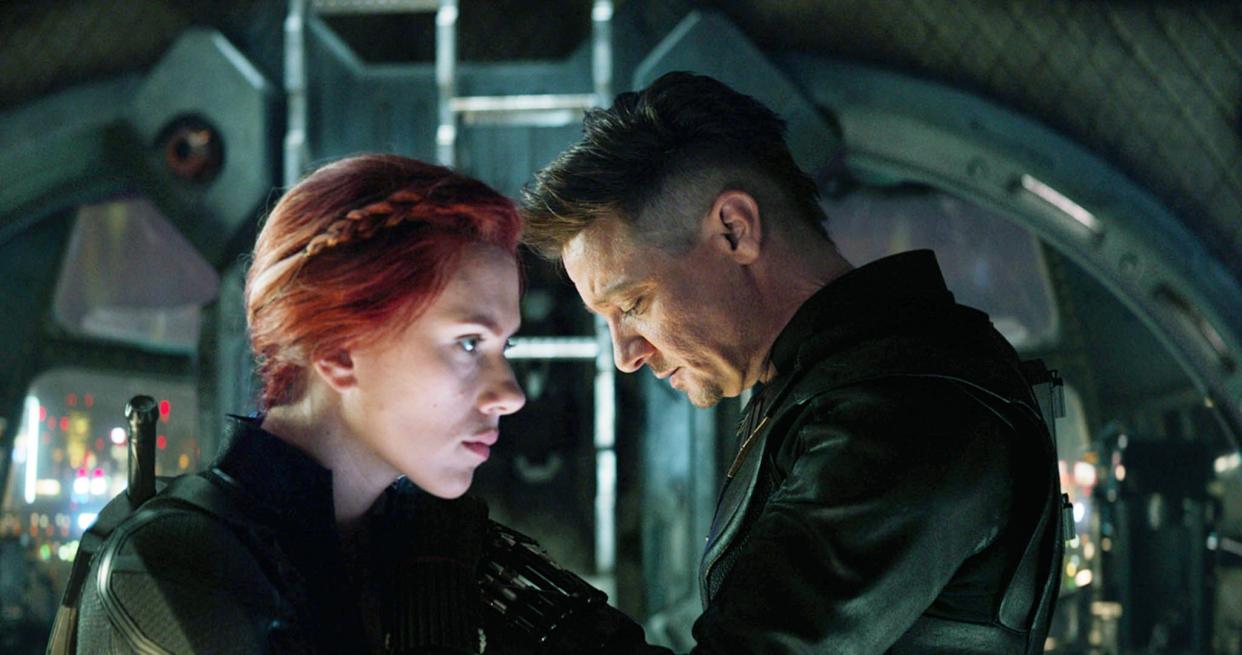Avengers: Endgame Doesn’t Just Mark the End of the Avengers as We Know Them

It’s finally here: After twenty-two films spanning nearly eleven years, the Marvel Cinematic Universe closes a chapter this week with the film fans have been waiting for. Avengers: Endgame is not only sending fans into rabid anticipation (presale estimates suggest somewhere in the $800-900 million worldwide box office for opening weekend), but it also marks a pivotal moment for the franchise. It’s the finale of the “Infinity Saga,” the comic book arc which has been peppered into each film since the first in the series, 2008’s Iron Man. It also marks the (possible) goodbye of some of Marvel’s most beloved characters and has led to speculation about who and how that'll happen (Chris Evans has formally discussed his retirement from the role of Captain America/Steve Rogers, but it’s not been announced what will happen to his character), leaving fans anxious to see which of their heroes, if any, survived The Snap from Avengers: Infinity War. However, and most critically important for the future of the film studio itself, Endgame marks the end of the shadow cast by its former CEO, Isaac “Ike” Perlmutter.
Perlmutter is the notorious current chairman and former CEO at Marvel Entertainment. If his name sounds vaguely familiar to you, it’s probably because in May 2015, Perlmutter was famously outed during the Sony hack as claiming that female superhero films were a bad idea and didn’t make any money. At the time, Kevin Feige—despite being named the president of production at Marvel Studios in 2007—still reported to Perlmutter, with the latter having total creative control. Five months later, despite Disney having bought Marvel in 2009, the company removed Perlmutter from his CEO position and gave him a chairman role with absolutely no creative control. Despite the hack controversy, several harassment lawsuits from former employees, and an allegation against Perlmutter that reported he’d said that all black people "look the same” following the hiring of Don Cheadle for a lower rate to replace Terrence Howard as War Machine, Disney claimed that the exec’s reshuffling was because it was the “next logical step in its integration” to centralize the film functions of all its properties (Lucasfilm and Pixar, included) in Burbank. It was then that Feige gained creative control of the MCU, and started to shape a universe that fans had been craving, and demanding, for several years.
In 2016, Feige’s first year without Perlmutter, Captain America: Civil War introduced two characters that opened the door to a cinematic universe that felt modern and more reflective of the world we live in: Black Panther (Chadwick Boseman) and a teenaged Spider-Man (Tom Holland). Both characters had their own films slated to debut within a year, and each film was breaking ground for inclusion and representation in Hollywood. Black Panther featured a largely black cast, and was helmed by a black director (Ryan Coogler); it went on to break box office records across the globe. Not only did it become one of the top-grossing films of 2017, but it also received an Academy Award nomination for Best Picture, the first comic book movie in history to do so. Spider-Man: Homecoming introduced a younger, and much more diverse cast (including Tony Revolori, Zendaya, and Jacob Batalon), to really capture the essence of where the young web-slinger was from—namely Queens, New York, a city whose population is made up of over fifty percent ethnically diverse communities.
Along with dispelling the preposterous myths about diverse films not making money, the debut of Captain Marvel, the studio’s first female-led and female-directed (co-director Anna Boden) film, has laid to rest the argument that female superhero films are not box office draws. Just six weeks after its opening, Captain Marvel has surpassed the one billion dollar mark worldwide, with over $400 million domestic, making it the seventh highest grossing Marvel film to date. And that’s not all: The diverse and inclusive cast of the entire MCU is only growing in size and scope, with each new film enriched with characters that all audiences can relate to because they’re finally able to see someone onscreen who looks just like them, as the hero.
In the four years since Feige has gained creative control over Marvel Studios (while reporting to Disney Chairman Alan Horn), the producer has heard and received fan and audience criticisms, including (fair) demands to see a cinematic world that reflects the one we live in, and to put inclusion at the very heart of Marvel’s storytelling. The MCU is thriving because of it. Thanks to Feige, the white male “standard” is no longer the only type of superhero that multiple generations of filmgoers will have to love and look up to. By making becoming an inclusive studio, the types of stories that are being told are reaching people and communities they have never reached before, and Endgame, while indicating the end of this an era, also marks the beginning of a new one- one that will never have to answer to or be in the shadow of a man who never wanted to give audiences the representation they deserve.
At the Avengers: Endgame premiere in Los Angeles on Monday night, I talked to Feige for a minute. He was his usual jovial self, baseball cap on and drink in hand. I mentioned a very specific moment that comes near the end of Avengers: Endgame that had me shouting with glee. It’s a moment that features some characters that have been birthed under Feige’s creative control, one that not only captures just how much the MCU has changed in the past four years but also hints at the future of the franchise itself. His eyes lit up, and he asked me how I felt when I saw it. “I yelled yes! and cried,” I told him. He smiled wide, nodding his head, and just said, “me too.” Odds are, you just might too.

